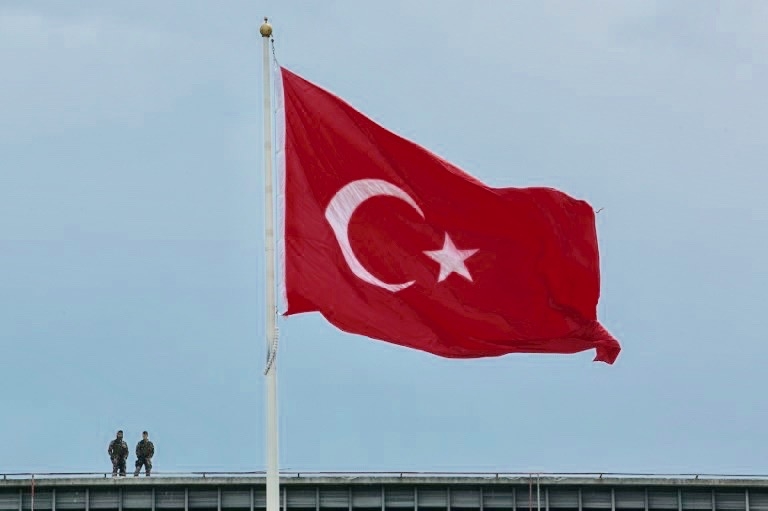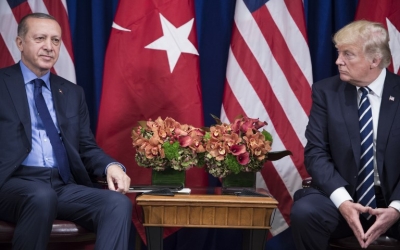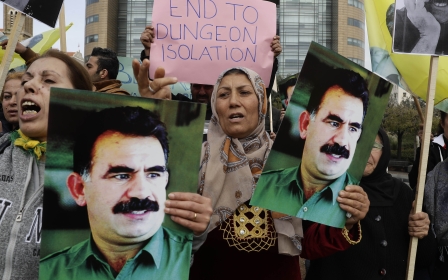US welcomes Turkey's decision to free former NASA scientist from prison

Turkey has freed a dual US-Turkish citizen from prison, the US State Department confirmed, in the latest conciliatory gesture that may help ease some ongoing tensions between the two countries.
The US State Department welcomed the news of Serkan Golge's release on Wednesday, almost three years after the former NASA scientist was rounded up in a crackdown on anyone suspected of backing a failed 2016 coup in Turkey.
"We welcome the news that Serkan Golge has been released from prison," State Department spokeswoman Morgan Ortagus said.
"We will continue to follow Mr. Golge's case closely along with those involving our own locally employed staff," she added.
.@statedeptspox: We welcome the news that Serkan Gölge has been released from prison today. We will continue to follow Mr. Gölge’s case closely, along with those involving our own locally-employed staff at @USEmbassyTurkey. pic.twitter.com/ELZOjPxWYr
— Department of State (@StateDept) May 29, 2019
New MEE newsletter: Jerusalem Dispatch
Sign up to get the latest insights and analysis on Israel-Palestine, alongside Turkey Unpacked and other MEE newsletters
US President Donald Trump and his Turkish counterpart Recep Tayyip Erdogan spoke over the phone just hours before Golge's release, but it remains unclear whether their conversation mentioned him.
Golge was detained while on holiday in Turkey in 2016, shortly after Erdogan launched a crackdown on individuals his government accused of supporting the attempted coup on 15 July that year.
He was sentenced in 2018 to seven-and-a-half years in prison despite objections from the United States.
On Wednesday, Golge's wife, Kubra, told Reuters she didn't know why Turkey freed him, but she said she was happy with the decision.
Crackdown on opposition
Since the failed coup, the Turkish authorities have targeted individuals linked to US-based cleric Fetullah Gulen, who was accused of being behind the attempted putsch.
Ankara accuses Gulen and his followers of waging a long-running campaign to dismantle the Turkish state by infiltrating key institutions across the country, particularly the military, police and judiciary.
A former Erdogan ally who has lived in self-imposed exile in the US since 1999, Gulen has denied accusations he orchestrated the coup plot that saw more than 250 people killed.
Human rights groups and several of Turkey's allies have voiced alarm over the scale of the crackdown, saying Erdogan is using the coup attempt as a pretext to quash dissent.
Meanwhile, the government says the scale of threats it faces necessitates such security measures.
Since the coup, Turkey has jailed roughly 77,000 people, while more than 150,000 others have been sacked or suspended from their jobs in the military, and in the public and private sectors.
Tensions escalated between Turkey and the US over the jailing of an American pastor, who was detained for two years over accusations he had links to Kurdish militants and Gulen supporters.
While Andrew Brunson was released in October, the relationship between Washington and Ankara has remained strained.
The two countries have been at odds over Turkey's purchase of Russian S-400 missile defence systems, as well as US policies in Syria.
Middle East Eye delivers independent and unrivalled coverage and analysis of the Middle East, North Africa and beyond. To learn more about republishing this content and the associated fees, please fill out this form. More about MEE can be found here.





